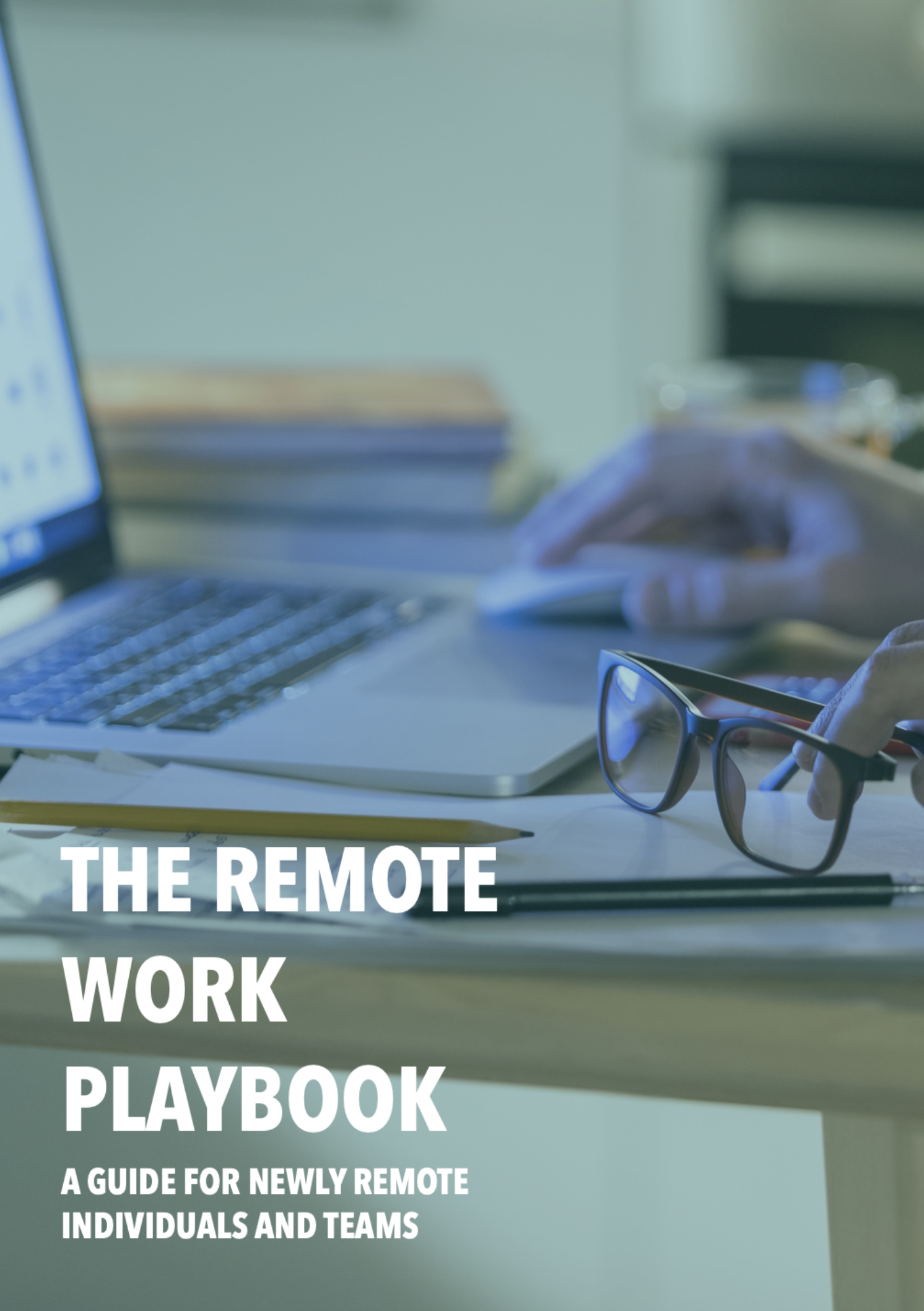A Glance to the Future In-House Counsel
BY
Edo Bar-Gil


Over the past several years,unprecedented disruptions have been dramatically changing the face of the legal sector and specifically, in-house legal departments.
Any attorney who has ever worked in a corporate legal department knows this to be true. The title “in-house counsel” takes on a new meaning. The in-house legal counsel no longer needs to be solely focused on the law, but rather on other para/non-legal tasks and on making sure that all these tasks are done, whilst simultaneously improving the legal processes and making the services more productive and cost-efficient.
Legal tech tools that are improving on an ongoing basis and increasingly being used provide legal departments and in-house counsels the ability to scale up and meet such goals.
Here is a glance of the ‘Future In-House Counsel’ and his/her day-to-day life. For the sake of good order, “Future” means the very near one – i.e. 2-5 years from now.
Matter / Content Management & Contract Lifecycle Management (CLM)
Currently, thousands of legal matters and documents are being managed by legal departments in a manual way (whether by using Excel or Word, in most cases) and in-house counsels deal insuch a way with various agreements and engagements.
However, the ‘Future In-House Counsel’ will utilize the right technology to manage all such matters, in away that will enable him / her and the organization to:
- Maintain accurate and up-to-date organizational data bases;
- Maintain a powerful and centralized data base with BI (business intelligence) and Big Data capabilities relating to all contract and business related data;
- Create and maintain a central, searchable and “smart” repository - “a single source of truth” - so the entire organization has access to the most current documents and data, on a permission-based basis;
- Track the entire lifecycle of contracts and other open matters from initiation till signature,including meaningful milestones and alerts;
- Create data base of templates and clauses, so contracts can be executed with greater ease and efficiency;
- Enforce compliance and mitigate risks / human errors through automatic, standardized processes enforced by the technology;
- Support version control of contracts, eliminating potential confusion and human errors.
- Make the negotiation and approval processes efficient and structured, by automating them, including all relevant referents in the process and reminding participants of action items and assignments.
- Execute contracts faster, by using e-signature and similar tools integrated to / with the technology.
- Create visibility and transparency to all stakeholders.
- Accelerating processes by removing manual labor and delay by automating repetitive tasks.
- Ensure best practices are followed by making processes standardized and repeatable.
- Drive more effective and timely collaboration among participants, evenincluding outside counsel and other members of the legal ecosystem.
- Extend legal best practices across the entire organization.
- Improve the cooperation between the different departments and stakeholders.
- Improve efficiency and reduce legal spend, by allocating the necessary resources, planning ahead and “eliminating” workloads.
- Eliminate / reduce risks for human errors.
AI (artificial Intelligence) and NLP (natural language processing)
Since legal research lies at the heart of the legal profession and any proper legal advice is (and should be) based on decent research, there is no doubt that NLP and AI can significantly assist.
Nevertheless, while NLP and AI are used for years in other professional fields, they have not been used broadly (and successfully) in the legal sector till recent days, even though their impact on such sector might be significant.
However, the ‘Future In-House Counsel’ will utilize the right technology to do the following:
- Ease the counsels’ queries, in a simple and intuitive way, like they use the Google Search. For example, instead of looking for the phrase “non-assignment”, one can easily type “what is the most important principle in a non-assignment clause?” - Based on the context of the query and thousands of other related queries, the system would “predict” what exactly the attorney wants to find and even suggest keywords to fill out thesearch.
- Streamline the searches, identify relevant cases (while eliminatingirrelevant ones) and analyze the decisions of any given judge or court. By doing that, counsels can tailor their arguments around what the judge/court will find most persuasive. It may also assist in “building” predictive models to help better understand how a judge or court may rule.
- Analyze huge amounts of data in a matter of seconds / minutes. By doing that, not only that counsels can make faster and more accurate decisions, but they may also create intelligent analysis and useful Big Data databases.
- Save lots of working hours and money.
In a recent study that explored the impacts of using AI in research platforms, the conclusions were decisive:
- Attorneys using AI finished research projects, on average, 24.5% faster than attorneys using traditional legal research.
- The results of the legal research done by attorneys using AI were, onaverage, 21% more relevant than those found doing traditional legal research.
- 45% of the attorneys believed they would have missed important or critical precedents if they had only done traditional legal research instead of alsousing AI to find cases.
Reporting & Analytics
The ability to access, from any place and at any time, anorganization’s up-to-date data base in an easy, secured and intuitive way has become increasingly important, specifically due to the Corona Virus crisis.
A better visualization of the data not only makes the day-to-day work more efficient, but also allows to plan ahead, create actionable insightsand minimize risks based on analytics. Bottom line, it positions the In-House counsel at the heart of the business and increases his / her added value to theorganization.
The ‘Future In-House Counsel’ will utilize the right technology to manage all such matters and by doing so he / she will also:
- Improve the organization’s efficiencies, by optimizing processes and outcomes of the legaldepartment, which is a junction of both legal and non-legal process and decisions;
- Optimize outside counsel selection based on costs and outcomes, so the right resource is assigned to the right matter;
- Optimize the legal spend and creating accurate legal budgets;
- Align with the organization’s goals and needs, as all stakeholders are includedin the processes and approvals;
- Position the legal department at the heart of the business, as it provides valuable data analytics to all other departments;
- Generate a data-based decision-making center for the entire organization;
- Reduce / Minimize risks, by making data driven decisions.
While there are huge concerns on the counsels side about the future and being replaced by machines (and some articles / predictions allegedly “support” such concerns), We have focused on the positive side and on the huge potential of using the right technology.
Should counsels embrace the change, not only that they would be able to utilize the technology to do the “unskilled / operational work” and focus on what they do best – i.e., providing legal advice / services – but they would also be able “invent” themselves and create more meaningful and interesting positions, such as ones that involve both legal and tech work.
In addition – and in a bit of disagreement with the above mentioned articles / predictions – not only that the legal tech revolution will not create jobless lawyers, but it will also create (like any other revolutions)new job opportunities and new exciting positions (for example, legaltechnicians and legal BI specialist).
To sum it up, legal departments and their managers can determine if and how they choose to embrace new technologies and operational efficiencies. However, in order to stay “relevant” and successful, they need to start forming a strategy today for how to get to the future. It is inevitable!
Over the past several years,unprecedented disruptions have been dramatically changing the face of the legal sector and specifically, in-house legal departments.
Any attorney who has ever worked in a corporate legal department knows this to be true. The title “in-house counsel” takes on a new meaning. The in-house legal counsel no longer needs to be solely focused on the law, but rather on other para/non-legal tasks and on making sure that all these tasks are done, whilst simultaneously improving the legal processes and making the services more productive and cost-efficient.
Legal tech tools that are improving on an ongoing basis and increasingly being used provide legal departments and in-house counsels the ability to scale up and meet such goals.
Here is a glance of the ‘Future In-House Counsel’ and his/her day-to-day life. For the sake of good order, “Future” means the very near one – i.e. 2-5 years from now.
Matter / Content Management & Contract Lifecycle Management (CLM)
Currently, thousands of legal matters and documents are being managed by legal departments in a manual way (whether by using Excel or Word, in most cases) and in-house counsels deal insuch a way with various agreements and engagements.
However, the ‘Future In-House Counsel’ will utilize the right technology to manage all such matters, in away that will enable him / her and the organization to:
- Maintain accurate and up-to-date organizational data bases;
- Maintain a powerful and centralized data base with BI (business intelligence) and Big Data capabilities relating to all contract and business related data;
- Create and maintain a central, searchable and “smart” repository - “a single source of truth” - so the entire organization has access to the most current documents and data, on a permission-based basis;
- Track the entire lifecycle of contracts and other open matters from initiation till signature,including meaningful milestones and alerts;
- Create data base of templates and clauses, so contracts can be executed with greater ease and efficiency;
- Enforce compliance and mitigate risks / human errors through automatic, standardized processes enforced by the technology;
- Support version control of contracts, eliminating potential confusion and human errors.
- Make the negotiation and approval processes efficient and structured, by automating them, including all relevant referents in the process and reminding participants of action items and assignments.
- Execute contracts faster, by using e-signature and similar tools integrated to / with the technology.
- Create visibility and transparency to all stakeholders.
- Accelerating processes by removing manual labor and delay by automating repetitive tasks.
- Ensure best practices are followed by making processes standardized and repeatable.
- Drive more effective and timely collaboration among participants, evenincluding outside counsel and other members of the legal ecosystem.
- Extend legal best practices across the entire organization.
- Improve the cooperation between the different departments and stakeholders.
- Improve efficiency and reduce legal spend, by allocating the necessary resources, planning ahead and “eliminating” workloads.
- Eliminate / reduce risks for human errors.
AI (artificial Intelligence) and NLP (natural language processing)
Since legal research lies at the heart of the legal profession and any proper legal advice is (and should be) based on decent research, there is no doubt that NLP and AI can significantly assist.
Nevertheless, while NLP and AI are used for years in other professional fields, they have not been used broadly (and successfully) in the legal sector till recent days, even though their impact on such sector might be significant.
However, the ‘Future In-House Counsel’ will utilize the right technology to do the following:
- Ease the counsels’ queries, in a simple and intuitive way, like they use the Google Search. For example, instead of looking for the phrase “non-assignment”, one can easily type “what is the most important principle in a non-assignment clause?” - Based on the context of the query and thousands of other related queries, the system would “predict” what exactly the attorney wants to find and even suggest keywords to fill out thesearch.
- Streamline the searches, identify relevant cases (while eliminatingirrelevant ones) and analyze the decisions of any given judge or court. By doing that, counsels can tailor their arguments around what the judge/court will find most persuasive. It may also assist in “building” predictive models to help better understand how a judge or court may rule.
- Analyze huge amounts of data in a matter of seconds / minutes. By doing that, not only that counsels can make faster and more accurate decisions, but they may also create intelligent analysis and useful Big Data databases.
- Save lots of working hours and money.
In a recent study that explored the impacts of using AI in research platforms, the conclusions were decisive:
- Attorneys using AI finished research projects, on average, 24.5% faster than attorneys using traditional legal research.
- The results of the legal research done by attorneys using AI were, onaverage, 21% more relevant than those found doing traditional legal research.
- 45% of the attorneys believed they would have missed important or critical precedents if they had only done traditional legal research instead of alsousing AI to find cases.
Reporting & Analytics
The ability to access, from any place and at any time, anorganization’s up-to-date data base in an easy, secured and intuitive way has become increasingly important, specifically due to the Corona Virus crisis.
A better visualization of the data not only makes the day-to-day work more efficient, but also allows to plan ahead, create actionable insightsand minimize risks based on analytics. Bottom line, it positions the In-House counsel at the heart of the business and increases his / her added value to theorganization.
The ‘Future In-House Counsel’ will utilize the right technology to manage all such matters and by doing so he / she will also:
- Improve the organization’s efficiencies, by optimizing processes and outcomes of the legaldepartment, which is a junction of both legal and non-legal process and decisions;
- Optimize outside counsel selection based on costs and outcomes, so the right resource is assigned to the right matter;
- Optimize the legal spend and creating accurate legal budgets;
- Align with the organization’s goals and needs, as all stakeholders are includedin the processes and approvals;
- Position the legal department at the heart of the business, as it provides valuable data analytics to all other departments;
- Generate a data-based decision-making center for the entire organization;
- Reduce / Minimize risks, by making data driven decisions.
While there are huge concerns on the counsels side about the future and being replaced by machines (and some articles / predictions allegedly “support” such concerns), We have focused on the positive side and on the huge potential of using the right technology.
Should counsels embrace the change, not only that they would be able to utilize the technology to do the “unskilled / operational work” and focus on what they do best – i.e., providing legal advice / services – but they would also be able “invent” themselves and create more meaningful and interesting positions, such as ones that involve both legal and tech work.
In addition – and in a bit of disagreement with the above mentioned articles / predictions – not only that the legal tech revolution will not create jobless lawyers, but it will also create (like any other revolutions)new job opportunities and new exciting positions (for example, legaltechnicians and legal BI specialist).
To sum it up, legal departments and their managers can determine if and how they choose to embrace new technologies and operational efficiencies. However, in order to stay “relevant” and successful, they need to start forming a strategy today for how to get to the future. It is inevitable!
about the author
Edo Bar-Gil coined his own unique approach to Legal Operations based on years of practical experience with legal ops; such as when he built up the AppsyFlyer's legal department from scratch. He is the Ceo of LawFlex Designed Solutions (https://www.lawflexds.co.il/)
LISTEN TO: NEWLAW ACADEMY PODCAST
On this show, we'll share insights to help you and your law firm gain a competitive edge.





.png)
.png)
.png)



.png)
